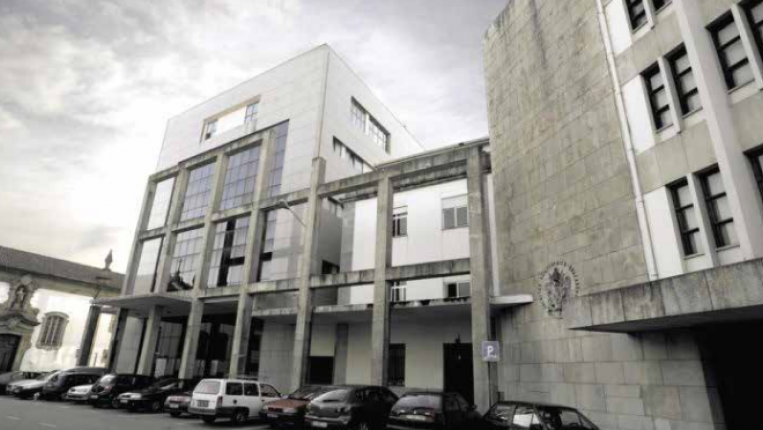Yesterday and today, Saturday, a meeting of contemporary writers will be held in the town of Caldas das Taipas (Guimarães). The event has the support of the Taipas Council and the Municipality of Guimarães. The event is curated by Pompeu Martins, who is also a published poet. Among the event's partner organisations is the Portuguese Catholic University - Faculty of Philosophy and Social Sciences.
This cultural and literary event takes place in the context of the spa imaginary, which is very popular in various places in the north of Portugal. It should be remembered that Termas das Taipas has a long history of writers such as Camilo Castelo Branco and Ferreira de Castro, among other personalities. Therefore, it is now a question of revitalising the cultural spirit associated with this space.
This cultural event aims to revive that tradition, revitalising Termas das Taipas as a privileged place to meet and talk with Portuguese writers. Guest writers include: Dulce Maria Cardoso, Luís Filipe Castro Mendes, Cláudias Lucas Chéu, Lauren Mendinueta, Ana Gil and Luís Aguiar. The latter two authors will publicly present the works resulting from their artistic residencies.
These Literary Encounters have a varied programme of activities, held in various specific locations - writing and illustration workshops, exhibitions, dramatised readings, talks with writers, theatre, presentation of works resulting from artistic residencies, etc. It targets both the general public and school audiences (students and teachers).
We take the opportunity of the presence of some writers for a very brief joint interview, in which three writers answer the same questions.
Each of these authors has published work: Luís Filipe Castro Mendes' most recent book is entitled “As Manhãs Que Não Conheces” (Assírio & Alvim); Cláudia Lucas Chéu's, “Aqueles Que Vão Morrer” (Labirinto); and Lauren Mendinueta (originally from Colombia), “Se o Amor Fosse Possível” (Labirinto).
How do you situate the uniqueness of your writing (poetry) in relation to contemporary trends? Is there a work that best defines your poetics?
- Luís Castro Mendes: Anyone who sets out to write poetry has the singular, strong voices of all the great poets they've read behind them. It's their legacy and at the same time their curse. Any voice that pretends to be singular has to confront all those to whom it is heir, and this can lead to the Oedipal ‘anguish of influence’ that Harold Bloom theorised, because we are always under the threat of not moving beyond epigonism. We have a rich and diverse poetic tradition, and I personally consider myself to be among those who work with the Portuguese language in their poems, without excessive prescriptive or programmatic concerns, but in permanent dialogue with tradition, whether in a pleasant conversation or in a struggle like Jacob's with the Angel.
- Cláudia Lucas Chéu: I can't say whether there are any singularities in my writing, particularly in poetry. I leave that assessment to readers and/or critics. There is, however, one work that serves as a reference for me - the poetry of Álvaro de Campos. I'm a fingernail of this heteronym of Fernando Pessoa.
- Lauren Mendinueta: I'm interested in exploring the most diverse possibilities of poetry and language. I've never thought about being part of a trend. I'm a very eclectic reader, I love the most diverse forms of art and I don't want to be part of any one. What I'm looking for is the secret, I aspire to get to the heart of reality with words. I aspire to be a poet who is honest with my vocation, which is why each book I write defines my poetics and completes it. My poetics is the whole, a commitment to live in and for poetry. In terms of teaching young people in the school system, what space should poetry occupy in literary education?
- Luís Castro Mendes: The neglect of literature and poetry in the teaching of Portuguese in secondary schools is regrettable. Learning how to use language cannot be reduced to a merely denotative and utilitarian level, without opening doors to a more complex and ultimately more human reading (because literature is the greatest example of what it means to be human). The poetic word opens up new and unsuspected horizons for young readers. It is our critical and creative capacity that is jeopardised by poor teaching.
- Cláudia Lucas Chéu: I know it takes up very little space because I have a daughter who attends the 3rd cycle. I look at the Portuguese textbook with some perplexity. They are the same poets that were studied 30 years ago. Florbela Espanca and Eugénio de Andrade, for example. I don't devalue the work of these authors, but I think there should be more diversity. More focus on poetry and less on narrative prose. Poetry could and should be a benevolent weapon placed in the hands of young people. Because poetry is a means and not an end; younger people understand.
- Lauren Mendinueta: We would have better academic results if we read more poetry in schools. There is more and more scientific evidence to show that reading poetry helps develop certain skills in our brains, such as critical thinking, and helps improve our problem-solving skills. Reading poetry helps us to develop another way of looking at reality, a richer and more comprehensive way. We need more poetry in schools, because as we can see, the benefits go beyond literary education and into people's lives, which is what really matters. What is the place or power of the poetic word in today's society, dominated by wars, crises of various kinds, in a growing climate of uncertainty, instability and fear?
- Luís Castro Mendes: Poetry, on its own, can do nothing, as Auden said. But poetry will only fulfil itself in its readers, in the more or less effective reach that the poetic word achieves when it is read. That's why poetry's only power is to stir the ideas and feelings of those who read it and show them ways beyond what is possible. Because only by thinking beyond false evidence can we transform the world.
- Cláudia Lucas Chéu: Poetry has a power of reach that is feared by all totalitarian regimes. That's why artists, and especially poets, have always been silenced. They are dangerous. In times of crisis, of war, poetry can have the power of the beautiful and the sublime (to expose horror). Only those who have the courage to look the world in the face, who are not satisfied with humanity as it is, write poetry. The rest is just spin.
- Lauren Mendinueta: Poetry won't save us from barbarism. The history of humanity is an accumulation of wars and difficult times, but words always help us to survive. For me, words are sacred and build reality. Laws and poetry are made of words, and both can change the world. You can make war with words, but you can't make peace without words. One of the main tasks of us poets is to guard the memory and protect the words of our human tribe, because words are sacred and powerful.





